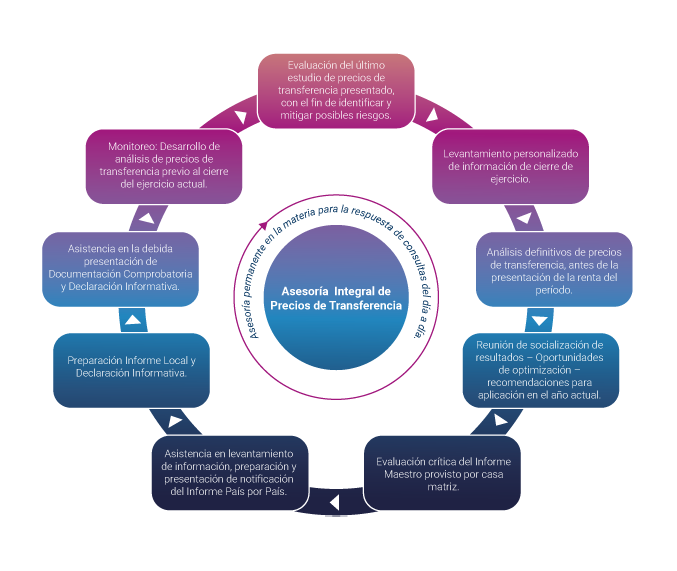
Effective transfer
pricing in the Covid 19 era.
Por (Autor) | Oct 14, 2020 |
FW: To what extent has the COVID-19 pandemic affected companies’ tax plans? What shifts have you observed specifically in relation to transfer pricing (TP) policies?
Ku: One of the great challenges for companies resulting from the coronavirus (COVID-19) pandemic is improving their liquidity. This has led to an increasing focus of companies on reducing the tax cash-out and filing requests for the deferral of payment of taxes due. Many of the companies that have been adversely impacted by the COVID-19 pandemic have reconsidered their transfer pricing (TP) policies. In particular, group companies that are taxed on a cost-plus basis, while making commercially no profit, are reconsidering their TP policies. The change of TP policy is mainly aimed at aligning the outcome of the TP model with current economic conditions. Dutch tax authorities have not been blind to what is happening in the world; they are very willing to discuss the impact of COVID-19 on companies’ TP policies.
Carden: Most multinational enterprises (MNEs) have adopted a ‘wait and see’ approach to COVID-19 tax and TP issues. There is simply too much uncertainty regarding the timeline for full economic recovery, particularly given recent outbreaks in France and the UK, as well as ongoing spread in the US. Until the overall impact is clearer it will be very difficult to assess whether TP positions should change, both because there is little third-party information indicating a consistent approach to repricing contracts, exercising force majeure clauses or otherwise modifying commercial contracts to reflect COVID-19’s impact. Moreover, the performance of the equity markets would make it hard to say with confidence that there is third-party evidence of changed expectations, higher capital costs or other fundamental economic shifts that would suggest that a policy update is warranted.
FW: As a result of COVID-19, what key areas do companies need to actively manage and monitor from a TP perspective?
Carden: Because of the uncertainty surrounding COVID-19’s economic impact, it is critically important to evaluate how businesses are performing in various markets and understand the impact of this performance under current TP policies, on as close to a real-time basis as possible. We are seeing very rapid changes in sales and profit levels in certain markets and industries, such that there is volatility from one month to the next. Providing overall guidance on effective tax rates or the consequences of TP changes is very challenging under these conditions. One potentially beneficial approach is to evaluate options to test TP positions over a multiple year period, which can smooth out some of these effects.
Ku: Companies need to be aware that the COVID-19 pandemic has resulted in uncertainty for their existing TP policies. The outcome of existing TP models may not align with the factual allocation of functions, assets and risks within the group under the current economic conditions. For example, companies need to actively monitor implicit additional financial support within the group or a temporary relocation of business functions and assets may require an adjustment to their TP model. Another key area that companies need to actively monitor is that it may become more difficult to find appropriate comparables for the pricing of intercompany loans and transactions as determining the standalone creditworthiness of loss-making group companies is a challenging exercise. Finally, companies need to actively manage their relationship with the tax authorities, as tax authorities typically adopt a reserved approach to accepting a change of TP policy resulting in a reduction of reported profit margins in their jurisdiction.
“Companies need to demonstrate that the exceptional economic conditions, which were unforeseen at the time of determining their TP policy, will lead to undesired results when maintaining the current TP policy.”
FW: To satisfy a potential future tax authority investigation, how should adversely affected companies demonstrate their commercial rationale for TP planning decisions made during the pandemic?
Carden: Significant changes to TP policies that are predicated on COVID-19 need to be carefully thought through and documented. For companies in heavily impacted industries, some changes may be appropriate and obvious. However, for many companies it is not yet clear that COVID-19 will be a genuinely extraordinary event rather than just a bad year. However, a number of companies are responding to COVID-19 by reassessing their supply chains and reducing dependence on a single country as a source of supply. Those changes provide a clear rationale for reassessing TP policies.
Ku: Companies need to demonstrate that the exceptional economic conditions, which were unforeseen at the time of determining their TP policy, will lead to undesired results when maintaining the current TP policy. Assessing the undesired results needs to take place in time to avoid as much as possible carrying out adjustments after the undesired results have occurred – in some jurisdictions a true-up/down is still seen as a red flag. The allocation of losses between group companies needs to be justified on the basis of how third parties would have acted in similar conditions. Proper documentation of the economic conditions and performed assessment is key to satisfying potential future audits.
FW: Given the fluid state of COVID-19, what essential advice would you offer to companies on defending TP strategies and decisions made during the crisis? Are current TP strategies likely to be contested by tax authorities once the pandemic ultimately passes?
Ku: Companies need to keep in mind that the attitude and leniency provided by the tax authorities during the crisis may differ from the position of the tax authorities in a few years from now. Tax authorities may judge, with the benefit of hindsight, current actions over time differently than now in the heat of the COVID-19 pandemic. Companies should also take issued guidance by the tax authorities into consideration when changing their TP policy. Furthermore, consistency of adjustments made on both sides of the transactions is key. Finally, companies need to sufficiently document their policies and performed analyses to explain the reasons why the decisions as made, were justified.
Carden: Companies must stay the course. It is far too early to reliably assess the impact of COVID-19, particularly because it is not yet clear how quickly economic activity will return to normal levels. At a high level, updating TP to reflect genuine operational changes arising from COVID-19, such as moving to a more localised or diffused sourcing model, is sensible, as well as easy to defend. Companies making changes solely as a result of not meeting profit expectations may find themselves facing significant pressure on audit. Consequently, we would caution against making any rash decisions that may, in hindsight, appear to be motivated by an unwillingness to follow ex ante allocations of risk when actual results do not meet expectations.
Jian-Cheng Ku advises on international tax law and transfer pricing with a particular focus on international tax planning, M&A and private equity transactions, corporate reorganisations and planning and design of transfer pricing policies. His clients include multinational companies, financial institutions and private equity firms. He has co-authored several articles on international taxation and Dutch taxation aspects. He can be contacted on + 31 (0)20 5419 911 or by email: jian-cheng.ku@dlapiper.com.
Building on several years of experience as a management consultant with McKinsey & Co. and serving as a law clerk for The Honorable Diane P. Wood of the United States Court of Appeals for the Seventh Circuit, Nathaniel Carden specifically concentrates on the tax aspects of ongoing business operations. He works with corporate and other clients across many industries, with a particular focus on life science, healthcare and technology companies. He can be contacted on +1 (312) 407 0905 or by email: nate.carden@skadden.com.
© Financier Worldwide
También te puede interesar





